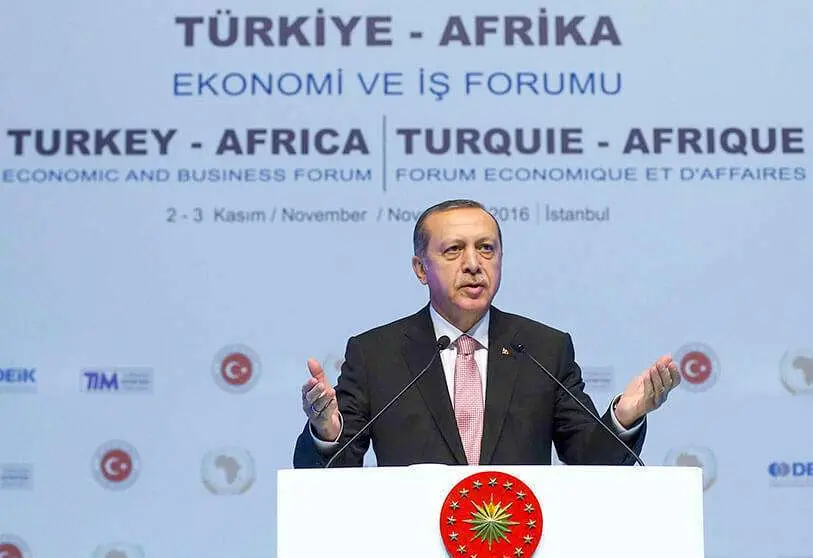Turkey, the Sahel and the Sahara

Turkey's ambitions extend beyond Libya to the Sahel and the Sahara, an area which we must regard as our backwater and whose total lack of control would threaten the security and stability of Morocco, Algeria and Tunisia, and consequently of Spain and the rest of Europe. It would be a mistake to assume that Turkey's ambitions are limited to Libya or North Africa. It would be even more unfounded to imagine that Ankara's alleged connections with terrorist organisations are limited to the Arab world.
The Turkish government paved the way for its Islamic project in Africa years ago, both through soft power stratagems and by establishing links with radical groups through the Turkish Cooperation and Coordination Agency (TIKA). The second part was reflected in Turkey's involvement with militants from across the continent. Perhaps many did not pay enough attention to the deepening links between Turkey and extremists in African countries such as Chad, Niger, Mali, Nigeria and Cameroon. Much of the region surrounding Libya is fertile ground for cooperation and coordination between Ankara and active terrorist organizations, which have increased their activities in recent weeks as Turkey moves into Libya and the major powers are distracted by the coronavirus pandemic.
The Islamist group Boko Haram, which originated in Nigeria, has begun to expand widely in the countries of the Chad Basin, almost as if following specific orders. It coincides with the Turkish military intervention in Libya. Boko Haram and other radical groups have also confronted the Chadian Armed Forces.
In February 2019, French fighters attacked armed rebels backed by Turkey and Qatar after they crossed the southern border of Libya to attack the President of Chad. Armed brigades, mercenaries and terrorists are concentrated in southern Libya after securing Tripoli and the west. The east remains a red line they cannot cross at this stage, knowing that as they approach, they will incur the wrath of Egypt. The south remains vital to their plans to fight the Libyan National Liberation Army (LNA), as well as to their wider objectives of working with Islamist groups in the Sahel and Saharan countries, on which Turkey remains dependent.
Turkey has succeeded in uniting diverse groups, including those in Syria, where it has brought together many extremist groups. The same strategy has been adopted for the Sahel and Saharan countries. This was demonstrated by the efforts of Turkey and Qatar to cooperate with various rebel factions in Chad, Sudan, Mali and Nigeria in recent years, sometimes under the pretext of sponsoring peace negotiations. But the real danger will come when Turkey manages to round up and transfer thousands of Syrian terrorists. Then it is likely to try to create a complex web of interests linking the local and regional dimensions. I insist, all this occurs in our own backyard.

